The Art of the Dealmakers

As the just-concluded Summer Press Tour proved, TV is not just looking more complex on-screen. Behind the scenes, it’s a jumble of wildly fluctuating episode orders, scrambles for talent, platform tussles and the steady, humming background noise of the volume continuing to be cranked up.
Oh, for the halcyon days of a handshake on the golf course or a slender contract fed into the fax machine. Today, negotiating a satisfying deal—let alone one that blazes a trail in the fast-changing industry—takes a lot of creativity and a big reservoir of patience.
This year’s class of B&C Dealmakers has those qualities and many more. Not all have advanced degrees in mathematics, but whether they represent buyers or sellers, documentarians or stars, showrunners or IP holders, they all know that game theory in the 21st century is full of surprises. Like the best stuff on-screen, these dealmaking productions are highly serialized and never end in a single night.
On the pages that follow is a closer look, in their words, at our 2016 class—their accomplishments, their clients and their perspectives on an industry in flux.
Dan Erlij
Partner, Television Literary Department, UTA
MOST MEMORABLE RECENT DEALS: Represented the writer Jesse Armstrong, who had a relationship with HBO through Veep, and prior development there. When he had a fantastic new TV pitch, we knew they were very interested, but also knew we would be hamstrung by his prior development quote with them. Instead of selling it to HBO outright, we managed to create a bidding war among a number of independent studios, which exploded once Adam McKay (Anchorman, The Big Short) committed to directing and executive producing. HBO did not want to lose the project and stepped in aggressively and committed to a production order on the pitch itself, which I believe is the first time they have ever done that. Also worked with client Benedict Cumberbatch to set up a production deal at Studio Canal for his new shingle, SunnyMarch. And negotiated a major international IP deal for Neil Cross to adapt the five-book Patricia Highsmith “Ripley” series for Endemol Shine Studios and Television 360.

BIGGEST WAYS THE DEALS HAVE CHANGED: Deals have changed most dramatically by virtue of shorter or limited cable orders, which are not built around specific timetables. You can no longer know exactly when a client’s pilot will be ordered and when the series order will follow.
Broadcasting & Cable Newsletter
The smarter way to stay on top of broadcasting and cable industry. Sign up below
BIGGEST STICKING POINT IN CLOSING DEALS: Exclusivity in development deals. Studios are still demanding position on clients when they develop with them, but because of the new cable landscape they can’t accurately give an end date to that position. The biggest issue in regards to staffing deals is that production periods on cable shows are often extremely protracted, resulting in coexecutive producers with very high-earned quotes making the same amount of money as story editors, because the production period has resulted in everyone “scaling out” at Article 14 [schedule of minimums] scale.
THE CHANGE YOU’D MOST LIKE TO SEE: I think that as the television landscape evolves, cable networks and studios need to have their business affairs departments evolve with them. There needs to be greater transparency about how clients can make money on their back-ends when shows are successful and understanding that if we are moving toward a more British-style of order patterns, that you can’t lock up writers and creators and prevent them from other employment when their shows are not in production.
KEY CLIENTS: Neil Cross, Benedict Cumberbatch, Anya Epstein, Danny Futterman, Drew Goddard, Jonathan Lisco, Erica Messer, Jim Patterson, Richard Price, Melissa Rosenberg, Mike Royce, Sarah Gertrude Shapiro, Nick Stoller, Jennie Snyder Urman.
Michael Kagan
Partner, Head of International Television & Media Department, ICM Partners
MOST MEMORABLE RECENT DEALS: The Little Big Shots deal. Produced by client A Very Good Production (Ellen DeGeneres’ production company) and hosted by Steve Harvey, Little Big Shots scored network TV’s strongest debut among total viewers from the 2015/16 season, scripted or unscripted, in its Sunday time slot debut. Another memorable deal was bringing over the successful U.K. format You’re Back in the Room (working title) to Fox, with client Taye Diggs hosting. You’re Back in the Room is a new eight-episode, one-hour comedy game show featuring contestants being challenged to complete a variety of simple, everyday tasks after being hypnotized.
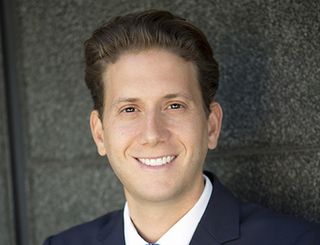
BIGGEST WAYS THE DEALS HAVE CHANGED: It seems that decisions are now made by committees rather than one person having the final say.
BIGGEST STICKING POINT IN CLOSING DEALS: The biggest sticking point in deals doesn’t always come down to the money. When dealing with multi-hyphenate clients, protecting their revenue streams and giving them the ability to work with multiple networks in different dayparts is crucial as well.
THE CHANGE YOU’D MOST LIKE TO SEE: Since non-scripted is predominately a non-deficit business, I would like to see more networks give real back-end definitions, especially in cable. Their definitions with the overhead charges and imputed license fees make the back-end practically worthless.
KEY CLIENTS: A Very Good Production, All3Media America (includes Studio Lambert, Objective & Maverick), Nick Cannon, Taye Diggs, Arsenio Hall, Clinton Kelly, 10 x 10 Entertainment (America’s Next Top Model), Tuesday’s Child.
Paul Haas
Partner, Scripted Television Group, WME
MOST MEMORABLE RECENT DEALS: Closed two-season straight-to-series order of Chance at Hulu through Fox21. Packaged the show, starring Hugh Laurie, produced by Michael London, executive produced by Alex Cunningham, based on a novel by Kem Nunn. The pilot was directed by Lenny Abrahamson, with producer/director Michael Lehmann. Also sold Man in the High Castle to Amazon, after having it in development at SyFy since 2012. Locked creator and showrunner Frank Spotnitz as an EP on that. Dave Semel directed the pilot. Produced by Scott Free. Orchestrated Marty Adelstein’s deal at ITV Studios.
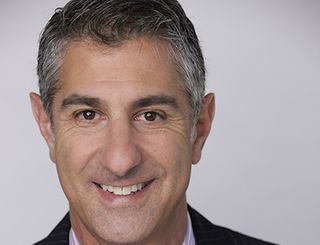
BIGGEST WAYS THE DEALS HAVE CHANGED: More than ever, agencies are the source for television shows. Since we now represent financiers in television-which is a new trend—as well as talent, we don’t depend as much on the traditional process of selling shows. This is creating more opportunities for our clients than ever before. Making deals used to be about exclusivity, but with the rise of premium cable/[over-the-top] programming, that is no longer the case. With shorter seasons, it no longer makes sense for clients to be exclusive for that amount of time and money.
BIGGEST STICKING POINT IN CLOSING DEALS: Every deal is different.
THE CHANGE YOU’D MOST LIKE TO SEE: I would like everyone to just do it my way…of course I know this has no basis in reality.
KEY CLIENTS: Peter Berg/Film 44, Glenn Gordon Caron, Greg Daniels, Leonard Dick, Liz Heldens, Laeta Kalogridis, Michael London, George R.R. Martin, John McNamara, Carol Mendelsohn, Scott Free/Ridley Scott, Dave Semel, Frank Spotnitz, Matthew Vaughn, Gus Van Sant.
Jessica Kantor
General Counsel, New Form Digital
MOST MEMORABLE RECENT DEALS: Dealmaking surrounding Pulse, a recent New Form project with Kyle Jarrow and Duncan Sheik, which is essentially an “electronic musical” with a mix of digital, traditional and musical talent. It will premiere on Go90 and centers on a group of American expats in Berlin’s vibrant dance music scene, telling the story of a year in their lives as a lush and provocative EDM musical. Generally, it’s also been memorable negotiating new deal structures with traditional unions for digital formats, often on set, in person, on the back of a script. The show must go on! And negotiating with a momager (mom + manager).
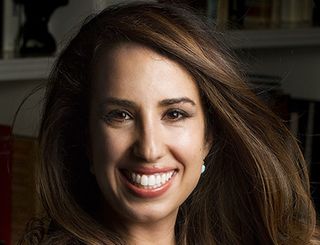
BIGGEST WAYS THE DEALS HAVE CHANGED: Dealmaking in the digital space has to balance multi-hyphenate talent and rigorous promotional demands. The digital space has fostered widely successful creators who have forged an identity and following on the bedrock of authenticity. It’s challenging to thread the needle with marketing demands that are consistent with a talent’s voice, which resonate and move their audience and translate into real data. Traditional actors do not have the same origin story, brand or rabid and active following. This requires a nuanced understanding of talent and nimbleness around contracting. New Form is breaking new territory in leading the market in scripted originals for digital platforms; part of my job is to translate that energy and new opportunity into deal structures that make sense for talent and their management. I have to be patient, creative and nimble with my deal structures, and often spend a great deal of time educating talent and their management on the landscape and business structures.
BIGGEST STICKING POINT IN CLOSING DEALS: Money.
THE CHANGE YOU’D MOST LIKE TO SEE: Working at New Form in digital is analogous to working in outer space; we are exploring unchartered, thrilling new territory. I would love to see that same spirit of creativity and innovation around dealmaking. Instead, often there is a tendency to stubbornly cling to traditional ways of doing business. What we need to do instead is link arms around a new toolbox. We should recognize this threshold moment for digital. Together we are early investors in a NASA-like technology and it is the time to be visionary.
Suzanne Lopez
Executive VP of Business and Legal Affairs, Fremantle Media North America
MOST MEMORABLE RECENT DEALS: Finalizing the last season of American Idol on Fox was high on the list as it was both significant and emotional. American Idol was groundbreaking, and revolutionized television through viewer engagement and in numerous other ways. The farewell season was an incredible tribute to the appeal of this format and the great American talent that Idol introduced to the world. Also, resurrecting some of our beloved, classic game show formats like Match Game, FamilyFeud (reincarnated as Celebrity Family Feud) and To Tell the Truth on ABC. The genre has had a resurgence this summer.
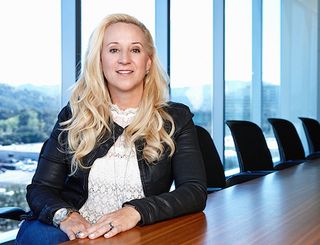
BIGGEST WAYS THE DEALS HAVE CHANGED: There is no longer one business model or one-size-fits-all template. There are many more buyers, and with that, a variety of possibilities around how we produce and distribute our content. We have to be creative in our deals in order to stay progressive in this constantly evolving, multiplatform landscape.
BIGGEST STICKING POINT IN CLOSING DEALS: Ownership will always be a sticking point.
THE CHANGE YOU’D MOST LIKE TO SEE: I would like to see more creative thinking, and more honest dialogue amongst the parties. Gamesmanship can really slow the process.
Rob Kenneally
Television Packaging Department, Creative Artists Agency
MOST MEMORABLE RECENT DEALS: Signing David E. Kelley in July 2014. The writer/executive producer is busier than ever. Kelley’s Big Little Lies was ordered straight-to-series by HBO in a bidding war and Goliath, which Kelley cowrote with Jonathan Shapiro, is one of Amazon’s first straight-to-series orders. Kenneally also packaged and sold Kelley’s Mr. Mercedes, based on Stephen King’s best-selling novel. It received a 10-episode order from AT&T’s Audience Network, and will premiere in 2018 on DirecTV and AT&T Uverse. For client José Padilha (Narcos), he sold The Brand, a 10-episode limited series to Showtime. He brokered deals for internationally known directors on high-profile U.S. productions, including Susanne Bier for the Night Manager miniseries for AMC; Johan Renck for Bloodline on Netflix; Adil el Arbi and Bilall Fallah for Snowfall for FX; and Ole Christian Madsen, executive producer and director of Banshee for Cinemax.
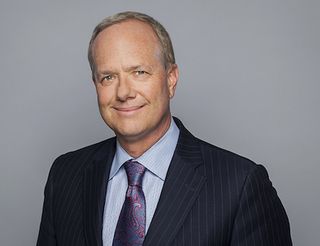
BIGGEST WAYS THE DEALS HAVE CHANGED: Throughout the past decade, we have seen the rise of the independent studio and the return of a competitive selling market. This evolution has paved the way for the growth in straight-to-series models, with international partners cofunding production for global distribution; new windowing models for content; and transparency in profits and no caps in success.
BIGGEST STICKING POINT IN CLOSING DEALS: Some of the sticking points we face include stacking rights and OTT, exclusivity of talent and length of terms, reversions of rights and foreign territory carve-outs.
THE CHANGE YOU’D MOST LIKE TO SEE: I would love to lose all precedents that no longer apply, like not counting tax credits against profits and including all ancillary markets (e.g., DVD, merchandise, etc.) in the profit pool.
Barbara Rubin
Partner/Entertainment Department Chair, Glaser Weil
MOST MEMORABLE RECENT DEALS: Representing Tegna Media (44 TV stations in 24 markets) and E.W. Scripps (33, 24) in structuring and negotiating series deals. Because they are relatively new to the current patterns of Hollywood dealmaking, they are more amenable to less paper and more personal contact. Recently, Scripps was in partnership with a major studio for an original series. The deal structure was innovative and complicated. We all got into a room and closed the deal within a few days. I also helped Machinima in the licensing and reformatting of intellectual properties, including working with Hasbro to acquire digital rights to the Transformers franchise.

BIGGEST WAYS THE DEALS HAVE CHANGED: Less personal interaction. When I grew up in this business and worked at the studios, we made it a point to first conduct and conclude negotiations on major deal points by phone or in person. Only after reaching agreement on important issues like money, term, profits, etc. were paper agreements sent out. We got to know the other side through routine back-and-forth, developing a trust that reduced paper nitpicking comments and created goodwill. Mindful that the parties have to work together after contracts are signed—and that each may need a favor in the future—the bond often proved significant.
BIGGEST STICKING POINT IN CLOSING DEALS: When to negotiate out the definition of profits. It is usually a 40-page tome, difficult to read and sometimes impossible to understand. The issue of profits needs to be revamped. Profits were conceived as a long-term incentive device, giving talent a powerful motive to reap a pile of money if their show turned out to be a home run. But more often than not, even with home runs, profits to the artist are so eaten up by expenses that very little money is ever realized. Talent, not surprisingly, is upset and trust starts to deteriorate. I suggest we go back to profit triggers: If a series is picked up for another season, if it is sold in foreign syndication, if it tops the Nielsen ratings, then the artist is rewarded by a sum certain.
THE CHANGE YOU’D MOST LIKE TO SEE: In my role as part-time faculty at Loyola Law School, I remind students all business is personal. In Hollywood, instead of getting to know your negotiating opponent, more often than not a contract is sent out with proposed deal terms buried inside. Once a document is presented, the other side seeks to protect itself, so it feels forced to make numerous comments before anyone even knows if a deal is actually possible. This creates unnecessary work for both sides and leads to sour relationships.
KEY CLIENTS: Anonymous Content, BBC Worldwide, Machinima, Jeffrey Melvoin, Scripps Media Inc., Tegna (formerly Gannett broadcasting), Martin Sheen
Gretchen Stockdale
Chief Operating Officer and General Counsel, Pilgrim Studios
MOST MEMORABLE RECENT DEALS:The Runner deal for Verizon’s go90 was unusual, memorable and significant. It was unusual in that it involved negotiating terms that, while similar to those of a major linear TV program, were for a first-of-it-skind show produced for a new social platform, influenced by its audience and social media and distributed in a new, innovative way. The Runner was memorable because it brought to fruition a concept 15 years in the making, and it was significant not only because of the parties involved (Verizon, Matt Damon and Ben Affleck), but also because it was for a series intended to bring the scope and familiarity of a primetime broadcast-quality program to a new generation of viewers in an untested manner.
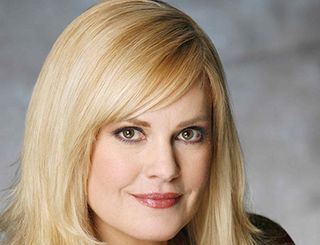
BIGGEST WAYS THE DEALS HAVE CHANGED: Dealmaking has become increasingly innovative. Today, negotiations take place not only with traditional broadcasters, but also with companies whose core business is not necessarily content-based or driven. In addition, advances in technology have made it so there are more rights to address in every deal; consequently, the familiar phrase “all media now known and herein after devised” is more important and better understood than ever before.
BIGGEST STICKING POINT IN CLOSING DEALS: Two for certain: money and rights.
THE CHANGE YOU’D MOST LIKE TO SEE: In a utopia, there would be no hiding the ball—everyone would honestly lay their cards on the table. If all parties identified their respective wants and needs at the outset, knowing that the wants are negotiable and the needs are not, dealmaking ultimately could be more efficient—and maybe even more pleasant!
Alan Saxe
Executive VP Business and Legal Affairs, WGN America and Tribune Studios
MOST MEMORABLE RECENT DEALS: Our relationship with Sony on our two series, Outsiders and Underground, and our pilot, Roadside Picnic, is demonstrative of a willingness to break the mold. Both parties have been able to achieve business results that might not have been possible with other networks or studios. As a smaller network, we have to be nimble, flexible and creative in our dealmaking. So many of the deals we have shaped are unusual, because as a buyer, we listen and try to address the issues that sellers bring to us. This willingness to break new ground helps us compete with many companies that have templates that they do not deviate from. On the Tribune Broadcasting station side, our team has redesigned the nature of the deals we have made. With 42% of the country covered by Tribune-owned stations, we can have a large impact on launching a series. Our deals on Crime Watch Daily with Warner Bros. and Celebrity Name Game with Debmar-Mercury and Lionsgate reflect a true win-win relationship between buyers and sellers.
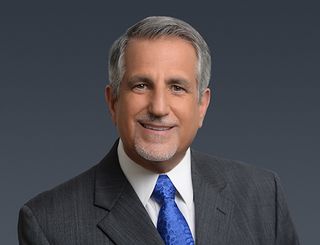
BIGGEST WAYS THE DEALS HAVE CHANGED: The digital marketplace is the dominant dynamic in dealmaking. As the [multichannel video programming distributors] compete with the [satellite video-on-demand] companies and OTT opportunities grow, dealmakers have to be totally familiar and cognizant of the marketplace, the rights kept and given and the multitude of windows that apply to each. It has become a balance among our various partners, suppliers, exhibitors and the MVPDs that carry our programming. The challenge is to come up with solutions that work for all the parties, while not compromising our ability to have the exclusivity we need now and in the future.
BIGGEST STICKING POINT IN CLOSING DEALS: Economics. The industry has evolved (some would say devolved) to satisfying internal economic models. Each company may have a different model with unique elements but in the end the economics need to work. So while digital rights and all its associated issues are the new hot topic in negotiations, it really is about economics. If you pay enough in license fees, all of the other issues get less important. Companies may prove less generous on the rights they will give up, back-end they may offer, but their upfront money is a very large incentive in doing a deal. Not long ago, WGN America and other networks were competing with a substantial SVOD company for a project. The SVOD company was very restrictive in the rights they were willing to give up, but offered a very generous upfront guarantee. Matching that offer didn’t make business sense for any of the networks. Needless to say the producers opted for the big upfront money.
THE CHANGE YOU’D MOST LIKE TO SEE: A performance-based measure on fees. Every agent feels that they are failing their client if they cannot get more than the last deal made for that client. The net result is that there is an expectation that subsequent buyers will suffer the mistake a previous party made in making a deal. You need to be respectful of past quotes, but I look at our deals based on our economics and the realities of each situation. I also think that dealmaking now involves too many voices. Beside the talent involved, there is an agent, a business manager, a manager and then the packaging agent. Each has his or her own focus and sometimes the comments/notes, etc. we get are all over the map. I would love to see one voice in every negotiation that promptly responds on all issues.
